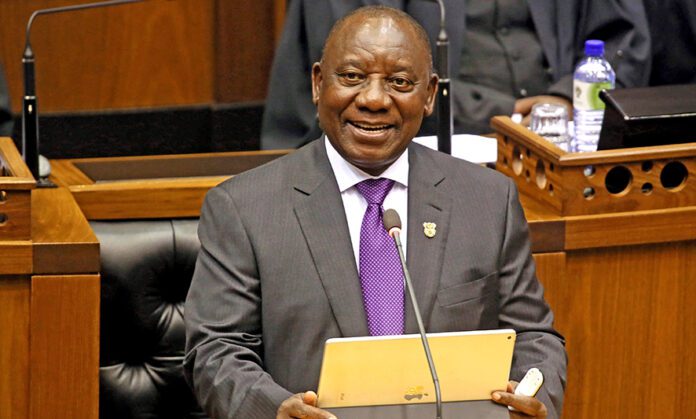South Africa has faced leadership challenges over the years, even dating back from the Mbeki, Zuma and now Ramaphosa eras.
However, the crisis of political leadership in South Africa has certainly spiralled out of control, with a myriad challenges, ranging from abuse of power, corruption, and to lack of accountability, to mention but a few.
The current national gloom occasioned by perceived lack of response to unemployment(especially among the youth), searing poverty, obdurate inequality, rampant crime, and worsening corruption, is a plea for caring, empathetic and responsive leadership.
Good leadership by our political leaders and the ability to make the country work for us should correlate. However, the poor ability to do this by our current political leaders has come to the fore over the past years. During the past decade or so, numerous negative political forces have conspired to frustrate or hinder the country’s socioeconomic development.
Among these are bureaucratic party structures, mounting national debt, flawed parliamentary democracy, party factions, deployment misplacing employment, political leadership that excels in elaborate plans but short on implementation, moral decline caused by political patronage, and, most importantly, government officials who fail to do the right thing, always.
When President Cyril Ramaphosa was sworn in as president of the Republic in 2018, he spoke of a “new dawn” in his first state of the nation address, which perhaps meant saving the country and working towards a better South Africa from what he found it to be following the previous Zuma administration.
The president went as far as quoting the late Hugh Masekela’s song “Thuma mina” (send me), which highlights self-sacrifice, individual responsibility, and the importance of personal change in mindsets. This was a way for Ramaphosa to galvanise citizens and the nation to action and rebuild the embattled nation.
It is now six years later and looking at the country, the president is certainly yet to fulfil his promises of a “new dawn”.
Leadership is the ability to act morally right. Songezo Zibi in his book titled Manifesto – A new vision for South Africa describes moral leadership as “when a leader, political or otherwise, chooses consistently to try to do the right thing in their chosen role.
“In their private life, it is about striving not to do anything so egregious as to offend the public spirit or expectations.”
We continue to see the country deteriorate under various political leaderships, more especially of former president Zuma and now Ramaphosa. We have watched a president who is usually slow in action and lacks accountability.
Some issues relating to this that are top of mind are the recent reports of alleged corruption at the embattled power utility Eskom with no accountability or action taken. Not to mention last year’s Phala Phala burning issue that occurred at the president’s farm. This was followed by an investigation by an independent panel, which has said there exists “prima facie” evidence that the president may have committed and breached anti-corruption laws.
Is it not at a time like this when Ramaphosa should be accountable instead of challenging the independent panel’s findings, which was dismissed by the Constitutional Court this week? Recently, Media Monitoring Africa approached the Constitutional Court to compel Ramaphosa to appoint a new board for the struggling SABC.
Why does Ramaphosa have to wait and have his hand forced to take decisions on so many pressing issues while the country is in a crisis?
Sadly, the current political leaders have proven numerous times to be self-serving and more interested in self-enrichment. Our political leaders are certainly keeping social distance with the masses relating to the commitments they presented when they took power.
Do they even care?
South Africa is in dire need of firm, decisive leadership. I am of the view that leadership is a direct response to accountability in the area of public administration. In substance, leadership and accountability are both attributional phenomena.
As I write this article, I remembered that this week on February 27 marked 45 years since the passing of South African revolutionary, Robert Mangaliso Sobukwe, who strongly believed that true leadership demands complete “subjugation of self, absolute honesty, integrity and uprightness of character”. Reflecting on the issue of what strong moral leadership would achieve for a country, I wonder if Sobukwe had lived to see this day, what would our nation South Africa look like had we followed his political principles and idea? Looking at the country today, what is Sobukwe’s legacy?
As Sobukwe said: “We must, therefore, appreciate our role. We must appreciate our responsibility. The African people have entrusted their whole future to us. And we have sworn that we are leading them, not to death, but to life abundant.”
This is what our leaders should be striving for, daily.
Follow @SundayWorldZA on Twitter and @sundayworldza on Instagram, or like our Facebook Page, Sunday World, by clicking here for the latest breaking news in South Africa. To Subscribe to Sunday World, click here



